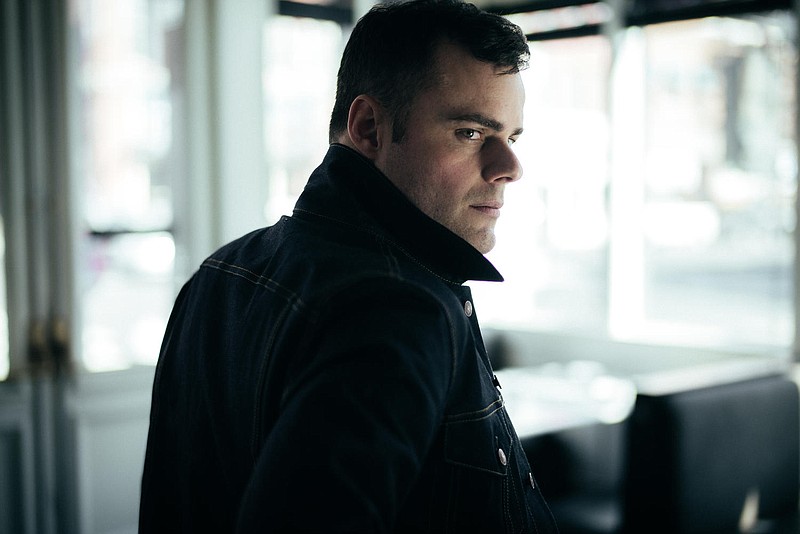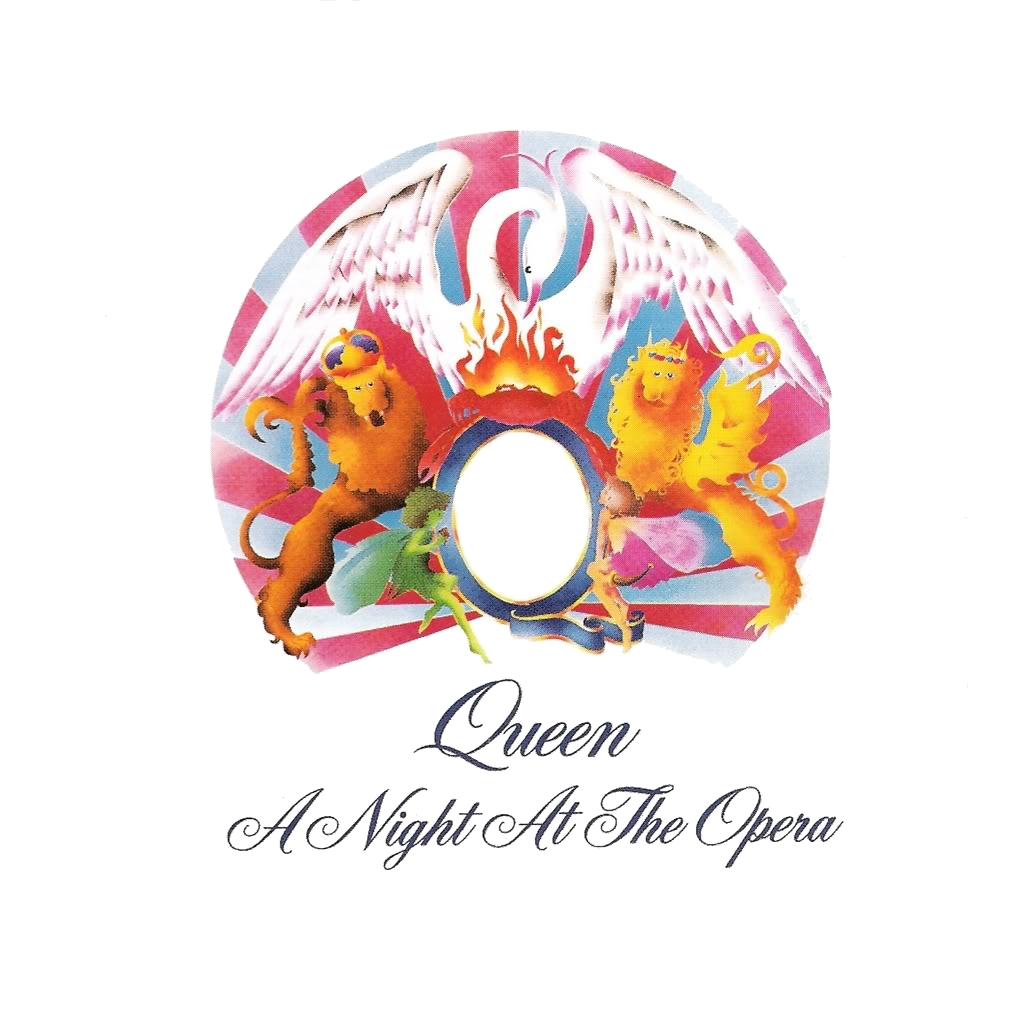If you go
› What: Black Jacket Symphony presents Queen’s “A Night at the Opera.”› When: 8 p.m. today and Friday, Feb. 23-24 (Friday is sold out).› Where: Tivoli Theatre, 709 Broad St.› Admission: $25 and $30.› Phone: 423-757-5580.› Website: www.tivolichattanooga.com.
Track listing
Side 11. “Death on Two Legs (Dedicated to …)”2. “Lazing on a Sunday Afternoon”3. “I’m in Love With My Car”4. “You’re My Best Friend”5. “39”6. “Sweet Lady”7. “Seaside Rendezvous”Side 28. “The Prophet’s Song”9. “Love of My Life”10. “Good Company”11. “Bohemian Rhapsody”12. “God Save the Queen” (instrumental)
Black Jacket Symphony will spend "A Night at the Opera" with Queen tonight and Friday, Feb. 23-24, but only tonight's show still has tickets. It was added after the initially scheduled Friday show sold out.
BJS is the Birmingham, Ala.-based outfit that presents classic rock albums, note for note, in a live concert setting. Also on their play list this month and next are Pink Floyd's "The Dark Side of the Moon," Led Zeppelin's "IV," "Michael Jackson's "Thriller," Fleetwood Mac's "Rumours" and Grateful Dead's "American Beauty."
These faithful re-creations are no small feat, but trying to find a singer who can capture Queen lead singer Freddie Mercury's signature vocals adds another level of stress. But BJS founder J Willougby says Nashville talent Marc Martel is up to the challenge. Even original Queen members Brian May and Roger Taylor thought so. They tapped him as the vocalist for the "Queen Extravaganza," a live show of Queen music Martel toured with for several years.
"We always go to great lengths to find 'the guy' who can make these albums come to life," says Willoughby. "We've had our eye on this one for a while, and when we say we've found 'the guy' to do Freddie Mercury, we've found THE GUY!"
"A Night at the Opera," released in 1975, was the fourth studio album by the British rock band. It has frequently been cited as one of Queen's finest works, particularly its centerpiece single, "Bohemian Rhapsody."
Q&A WITH FREDDIE MERCURY SOUND-ALIKE MARC MARTEL
EDITOR'S NOTE: This Q&A with Marc Martel originally ran on Nov. 20.
By Staff Writer Shawn Ryan
For the past few years, Marc Martel of Nashville has been the vocalist for the "Queen Extravaganza," a live show that focuses strictly on the music of Queen. He was chosen by original Queen members Brian May and Roger Taylor because he sounds so much like vocalist Freddie Mercury.
Before the Extravaganza, he was lead singer in Downhere, a Christian rock band from Canada that has won five Juno Awards, Canada's equivalent of the Grammys, and 24 Covenant Awards, the country's equivalent of the Doves.
In February, Martel is coming to Chattanooga with the Black Jacket Symphony for a note-for-note performance of Queen's "Night at the Opera," the band's 1975 album that includes the band's signature song, "Bohemian Rhapsody."
Here's a Q&A with the singer.
Q: Twenty-five years after Freddie Mercury's death, what do you think his legacy is?
A: I see Freddie's legacy as the great example of pouring yourself into your work. Breaking through creative barriers. Never being satisfied with the status quo - particularly in his early work. Never letting what's popular dictate how your own art should look and sound. I'm a better singer now, having sung his music for a few years. He has challenged me to rise up to the bar he set. I'm sure he had his influences, but he seems to stand on his own as an original nonetheless.
Q: Many musicians say Freddie and Queen were big influences, but where do you see his fingerprints today?
A: I'm finding it more and more difficult to find his fingerprints in today's music. Queen's hits are as ubiquitous as ever, having reached classic status, and their permanent mark on popular music is undeniable. But Queen were not much for subtlety, or the formulaic, and I don't hear the big voices much in the most current music. Seems like we're in an era of less-is-more. I can think of Adele and Bruno Mars, off the top of my head, who I'd bet have listened to their share of Freddie. But Freddie had a raw, unpolished aspect that I'm not certain would fly today. He sang his guts out even when his voice wouldn't let him. I really admire that spirit. Of the live performances I've seen of him, I've never once seen him look bored. I've been around long enough to know that music goes in cycles. I'm sure there will eventually be a return to the more grandiose.
Q: Having performed Queen music for about four years, what have you learned that you didn't know before you were in "Queen Extravaganza"?
A: That it's OK to fail. I tend to be one of those who opt out of something if I don't think I will nail it. Even Freddie had his not-so-well-received offerings. When you produce that much music over your career, you're going to disappoint someone. In this age of internet trolling, feedback is immediate. And if you choose a career whose success depends on public opinion, if you don't have that thick skin and assurance that you were made to do something, you're in for a hard life as an artist.
Q: In "Queen Extravaganza," do you also try to emulate Freddie's stage persona?
A: I really do my best not to. Even though I spent 13 years in a band before the QE, I never got to develop my own "frontman" persona since I was also the guitarist in the band, which really restricts movement. Now throw me into a band where I'm free to roam anywhere I wish - no one did that better than Freddie. He was gymnastic in his presentation, always moving. Gesturing with his arms - his whole being really. Telling the crowd where to look. So if you see me borrowing a bit from that, it's just that I don't know any better way to do it. Casually sauntering around the stage while singing Queen feels wrong to me.
Q: How has performing in "Queen Extravaganza" affected your personal music/songwriting?
A: I don't know that it has changed much. If you listen to my old band Downhere's music, I don't think it's much different than how I write today. I am pushing myself harder as a singer. The boundaries of what I think I can do have been pushed out for sure. But it's not like I'm putting lead guitar harmonies or big vocal stacks everywhere!
Q: When did you become aware that you had a voice that sounded very much like Freddie's?
A: In the early 2000s when my friend Glenn Lavender - Downhere's bass player - knowing that I'm a natural mimic, suggested I investigate Queen's music. He's always been a huge fan of theirs (the first album he even bought was "Hot Space"). Listening to Queen caused me to use what was naturally already there and nurture it instead of trying to force my voice into a sound that wasn't really me. Eddie Vedder's, for example! I didn't get too deep into Queen's repertoire, honestly, but I think it unlocked something in me and gave me permission to sound the way I do, even though I didn't hear that sound anywhere in contemporary music. It was around that time that I began getting regular comparisons to Freddie. It became a joke pretty quick.
Contact Shawn Ryan at sryan@timesfreepress.com or 423-757-6327.

